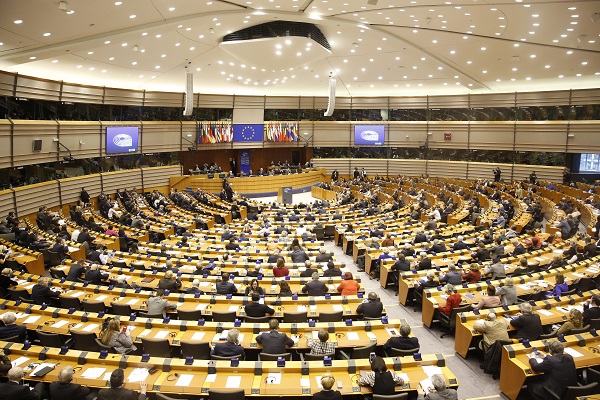EP endorses new anti-dumping rules
Published : 16 Nov 2017, 02:00
As a crucial step to update European Union's (EU) protectionism arsenal, the European Parliament on Wednesday finalized its legislative procedure by approving amendments on EU's new anti-dumping rules.
The amendment endorsed the informal agreement on the new rules struck by MEPs and Council of the EU negotiators on Oct. 3. It was backed by 554 votes to 48, with 80 abstentions.
According to the amendments, the social and environmental impact of dumpings will be taken into account when deciding on anti-dumping measures, and the EU Commission is to monitor circumstances in exporting countries, said a press release of the Parliament.
Meanwhile, EU firms may rely on these reports when lodging complaints. There will be no additional burden of proof on EU companies in anti-dumping cases, on top of the current procedure, small and medium-sized enterprises will get help to deal with procedures, and all parties involved, particularly trade unions, may give input to decisions on trade defense measures.
The core of the new rules is using the "substantial market distortions," which is stated neither in the anti-dumping nor the anti-subsidy rules of the World Trade Organization (WTO), as a replacement of the "surrogate country" approach.
The new rules came against a backdrop of the expiry in December 2016 of the Article 15 of the Protocol on China's accession to the WTO, which allowed the EU to regard China as a Non-Market Economy and use the "surrogate country approach" in its anti-dumping investigations against China.
Signed when China joined the WTO in 2001, the Article 15 of the accession protocol made clear that the "surrogate country" approach expired on Dec. 11, 2016.
Analysts believe that by adopting the "market distortion" scheme, the EU is trying to kill three birds with one stone: safeguard its reputation as free trader, fulfill obligations endowed by Article 15 while keeping its trump card--the "surrogate country" approach.
The EU said earlier in a statement that the rules were formulated in a country-neutral way and in full compliance with the EU's WTO obligations.
"I do not believe (the statement) so for even one minute," said Edwin Vermulst, a partner of the VVGB international law firm in Belgium, commenting on the statement.
Vermulst believed that the new methodology for calculating dumping margins is repackaged "non-market economy methodology."
"Although it appears to be non-discriminatory, it in fact continues to target China," he said.
Prior to Wednesday's vote, China's Ministry of Commerce (MOC) told the EU that its new anti-dumping rules granting separate treatment for imports under "significant market distortions" are not in compliance with WTO obligations.
The concept of "significant market distortions" is not stated in the anti-dumping rules of the WTO, said the MOC spokesperson Gao Feng at a press conference in October.
The move is thus groundless and will harm the effectiveness of the WTO anti-dumping legal system, as it adds uncertainty to the rules' applications, Gao said.
Wednesday's green lights marked a major step-forward of EU's long-brewed plan to sharpen its trade defense weapons.
In November 2016, the European Commission proposed a non-exhaustive list of examples to be used to identify significant market distortions, unlocking its campaign to replace its "surrogate country" approach with "market distortion."
Following a discussion on June 20 this year, members of the European Parliament's Trade Committee made several key amendments for the Commission's proposed document, including taking into account an exporting country's fiscal, social, and environmental standards when assessing its trade practices.
In its July plenary session, the European Parliament agreed to start talks with national governments on the new rules.
In October, the Parliament's negotiating team and the EU ministers in Strasbourg struck the informal agreement on new investigation methods for anti-dumping, and endorsed the agreement in the international trade committee on Oct. 12.


